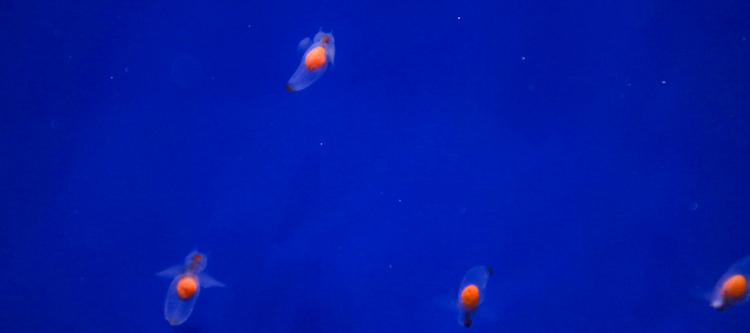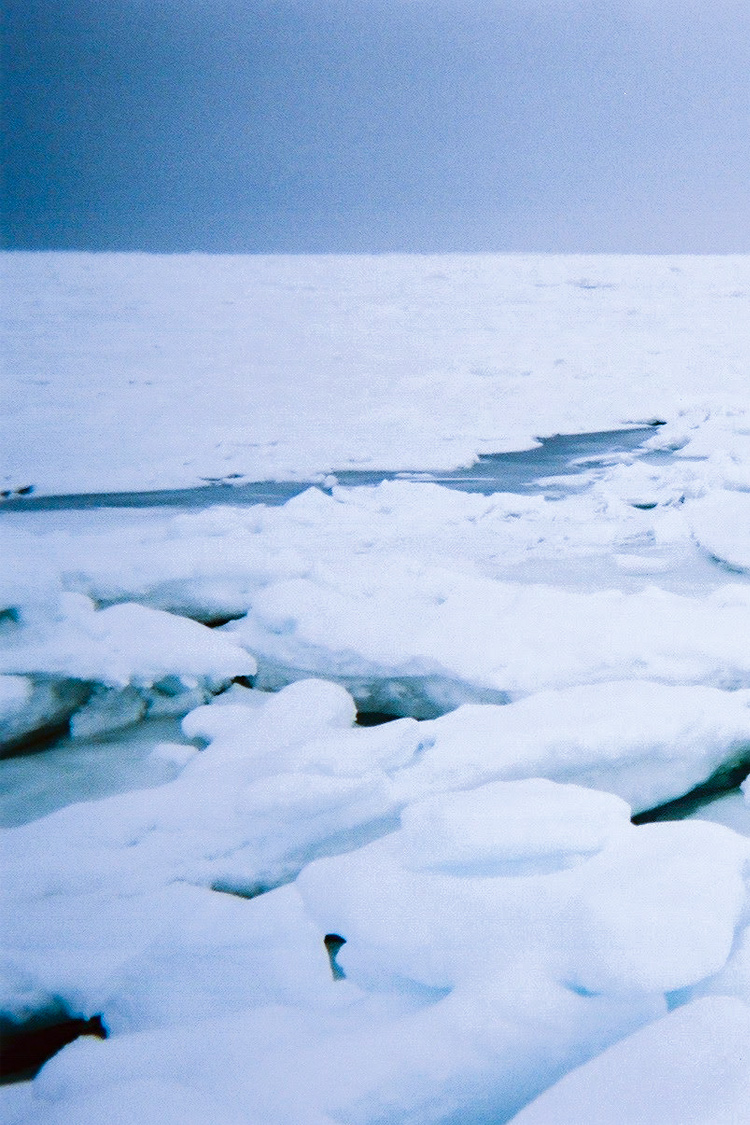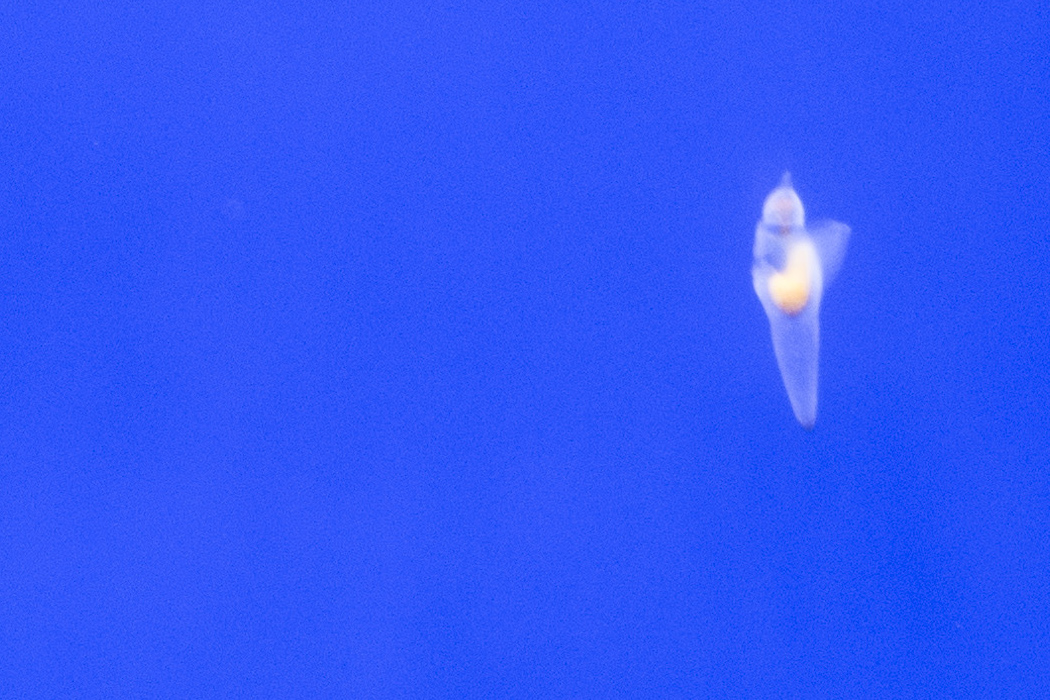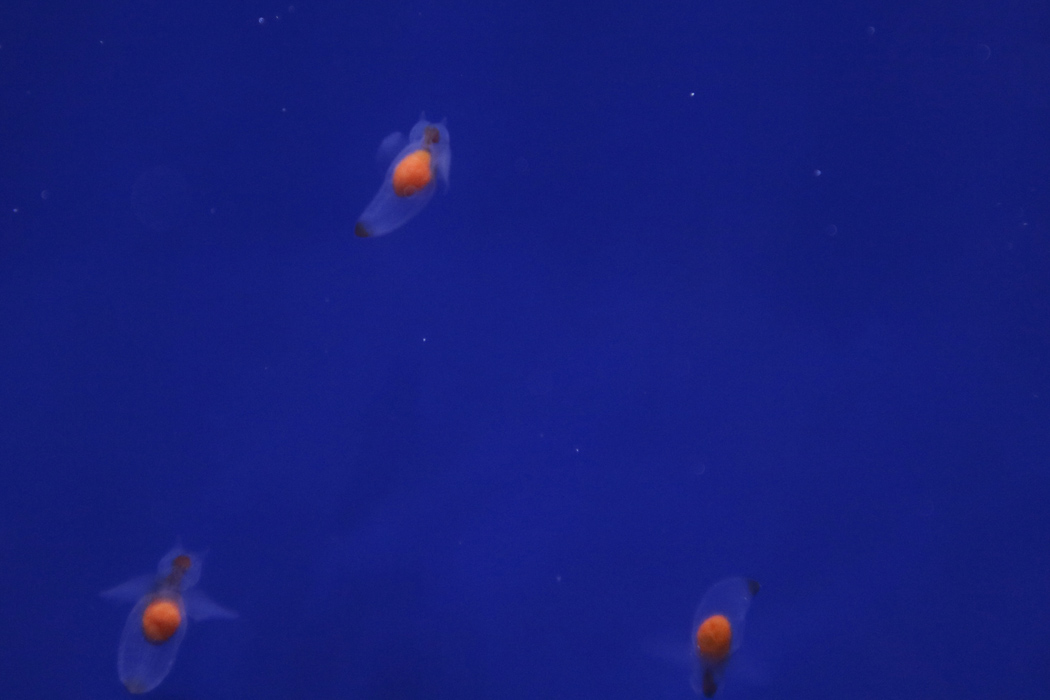
Clione
Swims with a pair of wing legs in front of the transparent body.
| Scientific name | Clione |
| English name | Clione |
| Japanese name | クリオネ |
| Classification | Gastropoda |
| Classification details | Gymnosomata Clionidae |
| Full length | 1-3cm |
| Distribution | Distributed in the Arctic and North Pacific Oceans. Also in Toyama Bay. |
Characteristics
The way they swim gracefully moving their wing legs is called the 'drift ice angel' or 'ice fairy'. It is related to snails, but does not have a shell. Viscera such as gonads and midgut glands appear red on the translucent body. It is carnivorous and uses six tentacles extending from its head to catch pteropods and absorb nutrients. It is eaten by salmon, trout, herring, etc. and constitutes the food chain in subarctic waters.

Habitat
It is on display at the Okhotsk Drift Ice Museum in Abashiri City, Hokkaido. It was slowly going up and down in a small tank.
In addition to clione, which can only be seen in the sea during the season when drift ice comes, you can also see creatures such as fusen fish and wolffish.
Pictures
Introducing a picture of Clione.

Picture book

Grey Wagtail
A wagtail with a distinctive yellow color that can be recognized at a glance.......ead more.

---
running brown band.......ead more.

Vermiculated puffer
Has fine spots on the back.......ead more.

Chinese bamboo pheasant
gray and orange head.......ead more.

Common Sandpiper
characterized by a high-pitched cry......ead more.

